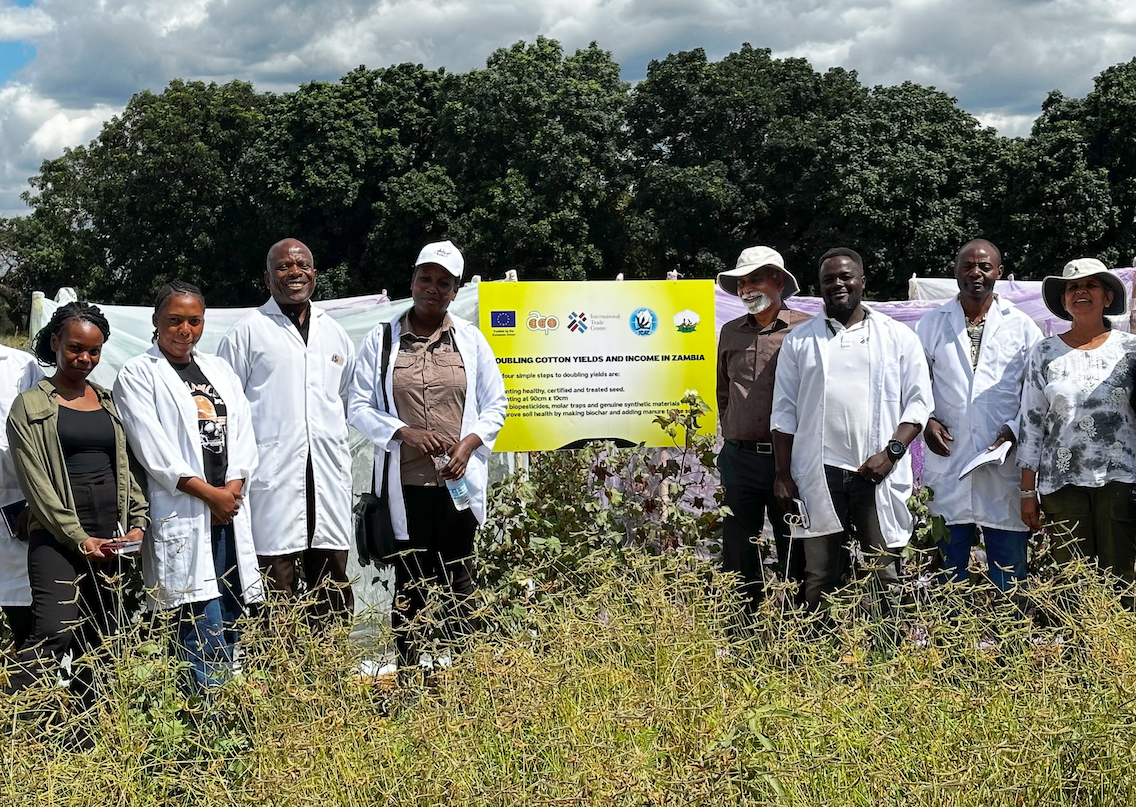Title: Strengthening productive capabilities and value chain alliances in Zambia. 2020-2023.
Project administrative staff: Mr. Kai Hughes & Ms. Caroline Taco
Project technical coordinator: Keshav Kranthi, Chief Scientist, ICAC
Project consultant: Dr. Sandhya Kranthi
Project funding: Funded by European Union and implemented by UNIDO, ITC and ICAC. Project Agreement number: B807; US$ 388,915.
Beneficiaries: Staff of CDT Zambia, staff of Alliance ginneries, Parrogate, China-Africa Cotton, Louis Dreyfus Company, Mount Meru and farmers.
The project was successfully completed in 2023. The primary goal was to demonstrate that it is possible to significantly enhance agricultural yields in Africa sustainably through soil remediation using regenerative agricultural techniques, all without incurring additional input costs.
The ICAC conducted research to identify key issues and develop country-specific technologies for Zambia. Studies conducted by the ICAC revealed that the majority of soils in the major cotton-growing regions of Zambia were highly acidic. To address this challenge, our initiative introduced a sustainable solution: biochar derived from cotton stalks. This alkaline material proved highly effective for low-cost and relatively permanent remediation of acidic soils.
We established over 350 model farm demonstrations that effectively showcased regenerative agricultural techniques through the ICAC’s four essential steps for enhancing crop yields. Farmers achieved more than double the yields in most locations compared to control fields, with some recording seed cotton yields reaching an impressive 2,760 kg per hectare.
The ICAC conducted 18 comprehensive training sessions that collectively reached approximately 4,000 participants, including farmers and field extension staff, with a noteworthy inclusion of 25% women trainees. Training included our standardized mass production techniques for biochar using the ICAC open-earth cone pit method, along with guidance on its proper incorporation into the soil using mixtures of Bokashi and Jeevamrit.
This innovative approach has been embraced by over 2,000 farmers, resulting in significant improvements in soil health and yield enhancement for cotton and other crops, even amid the severe drought that Zambia faced in 2024.



